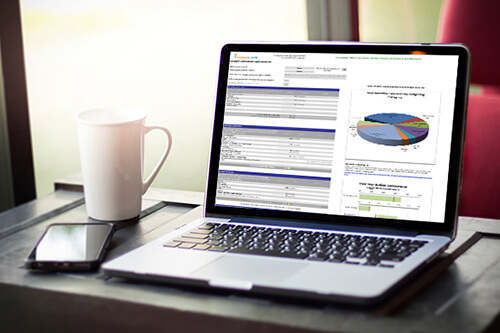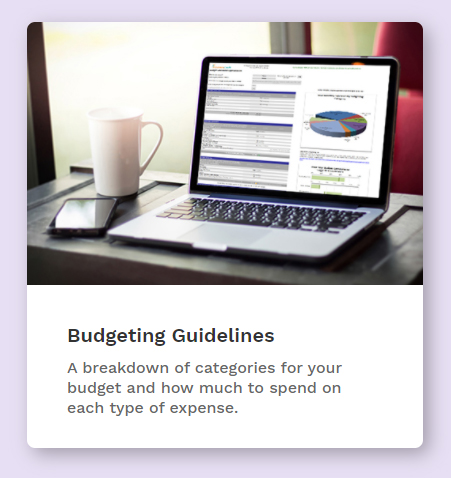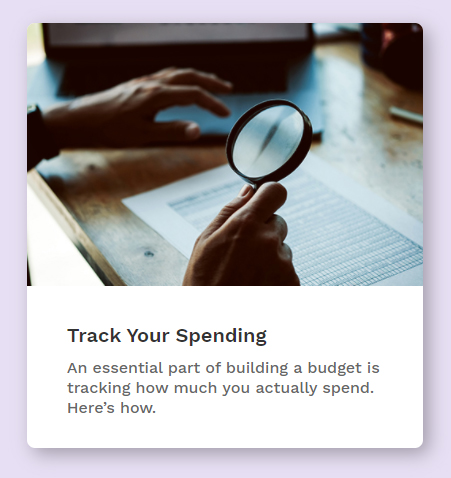Money Management Basics:
Top Tips for How to Manage Your Money
From paying off debt to creating an emergency fund and getting savings in the bank, your financial fate hinges on key money management basics. Getting familiar with the fundamentals of how to manage money lays the groundwork to achieving your financial goals.
Money management skills range from ensuring you pay off your debt, to tracking your spending, to setting short-term and long-term goals. Habits like these are good for everyone regardless of your income, how much debt you’ve accumulated, or your economic situation. Whether you’re earning minimum wage, or a six-figure salary, if you aren’t careful with your spending and are aware of where your money is going, your bank account will end up in the red.
Take a good look at the list of tips below to see which ones you’re already doing and which ones you can begin to apply. Start with introducing a few tips at a time, paying attention to mastering each habit before adding more into the mix.
Take Stock of Where You’re At
Get organized and take stock of all of your bank accounts and investments, credit card accounts, lines of credit and other outstanding debts, and financial accounts you’ve opened.
You need to have an awareness of where you stand now: how much is in your bank account, tax-free savings, investments, and property worth? How much do you owe, including all credit card debt, student loans, lines of credit, and other credit products?
You also need to pay attention to how much you earn. With these measurements in mind, you’ll know what your parameters are for the next few steps.
Create a Budget
With your income and debts in mind, you need to carve out a realistic budget that balances out every month while addressing your needs and wants.
Your budget needs to include your fixed expenses, such as your mortgage or rent, your bills (e.g. utilities, day care costs, and cell phone plans), and your transportation costs (e.g. car payments, gas, maintenance, or bus tickets). Debt repayment plays a pivotal part too – you need to identify a reasonable amount of money to dedicate to repaying your debts.
Your budget also extends to your expenses, such as groceries, eating out, entertainment, and other miscellaneous costs, such as travel, gifts, and other one-off expenses.
Ideally, your income can spread out enough to cover your fixed costs and your discretionary spending. No budget is set in stone – if you find you’re overspending in some categories and possibly under spending in others, revise your budget so it better reflects your day-to-day needs. If your budget is super tight, focus on the most essentials first, e.g. rent or mortgage, housing expenses (e.g. utility bills), groceries, and transportation.
Try using our interactive budget calculator that gives you guidance to help create a balanced budget.
Pick Your Best Debt Repayment Strategy
You now have an up-to-date tally of your debts and a budget to adhere to. Commit to tackling your debt, dedicating a portion of your monthly income towards debt repayment. Your debts can be repaid in many ways – you could address highest interest rates first, or you could spread the wealth evenly.
What Is the Best Way to Pay Off Debt?
Make a note of all of your payment due dates, ensuring that you meet minimum payment requirements, and interest rates and make a plan that’ll steadily decrease your debts.
How Do I Know If I Need Professional Help with My Debts?
Automate Savings
The easiest way to ensure that your savings grows, is to set it and forget it. Set up a separate savings account and automatically stash away a small sum of money each month. If you’re busy and often forget payment due dates, automate these payments too.
Track Your Spending
Whether you’re using apps or pen and paper, get into the habit of tracking your spending. It’s an excellent exercise to gain insight into where your money is going every month, and figure out ways to cut back on your spending. Within a few months of tracking, you may realize you’re spending far too much on eating out, or that your discretionary spending is low but your housing costs are eating up most of your income.
For an added challenge, sprinkle in a few “no-spend days” into your tracking, in which you don’t spend any money at all.
Try a Cash-Only Diet
If you’re trying to wean yourself off of relying on your credit card and adhering the to spending limits you’ve created in your budget, try a cash-only diet for a few months.
Withdraw cash and place the money in envelopes that represent each category of your budget. Once the money is gone from the designated envelopes, you’re out of spending cash until next month. Keep the receipts in each envelope and you’ll see how you spent the money.
Find Ways to Lower Your Expenses
Unless you’re already incredibly frugal, your expenses can be decreased. It isn’t wise to cut back aggressively because dramatic sacrifices aren’t sustainable. You’re better off making small changes that are feasible in the long run – prepare meals at home and treat yourself to dinners out just one day of the week, or make your coffee instead of buying an expensive latte, for example.
You can also lower your expenses by revisiting fixed costs. Could you comparison shop to find a lower price for your Internet, water, or hydro bills? Could you call your bank to lower your monthly fees? Even if you’re locked into a contract, e.g. cell phone plans, there are times when you can scale extra features down to size, or go with a slightly less generous base plan that still falls within the contract parameters.
Small Payments Make It Easier to Pay Off Debt
Plan For the Unexpected
You’re going to face hiccups in your path to financial success – a leaky roof, surprise layoffs, or other unexpected events creep up and it’s in these instances that an emergency fund is invaluable.
Stash away a small pot of money – to the tune of what would cover your living costs for a few months – for a rainy day. You may not need it, but if you do, an unexpected event won’t derail your savings plans or put you in the red.
How to Plan for Unexpected Expenses
Generate Sources of Income
While cutting back on your spending is one half of the equation, the other half is generating income. Some income streams are obvious: your full-time job, or renting out your spare room. But others are more innovative, such as selling gently used clothing and electronics online, or considering your hobbies and skills and turning them into services, such as teaching hockey lessons, baking birthday cakes, or selling artwork or other crafts on Etsy.
If you’re really eager to pay off debts and save up, take on a part-time job or put in extra hours at the office.
How to Accelerate Your Debt Repayment
Set Your Financial Goals
You’ve now committed to a budget, monthly savings, and repayments to your debts, while carving out savings along the way. What is your grand plan?
Contemplate your long-term goals, and determine how much these major milestones may cost, such as higher education, a down payment on a new home, a summer holiday to Europe, or starting a family.
11 Ways for Mature Students to Fund Higher Education
Turn this exercise into smaller checkpoints: short-term goals, such as saving up for a summer vacation, and long-term goals, such as socking away money for a down payment on a new home. With clear financial goals, you’ll know precisely what you’re working towards.
How to Tell If You’re Ready for a Mortgage
Get Help If You Need It
Your pay cheques don’t come with instructions. If you feel like you’re drowning in debt, forget the steps above, and seek help first. One of our professionally accredited Credit Counsellors can provide you with the help you need. They can have a look at your debts and walk you through your options, from debt management programs to debt consolidation plans or handling things on your own. They can also help you refine a budget or teach you other tactics such as tracking spending. Appointments are free, confidential, and you can talk to a Credit Counsellor in person or over the phone. You aren’t obligated to take any further action by speaking with your Counsellor and your meeting is a judgment-free zone. There are no hidden fees, fine print or strings attached. Contact us now – you’ve got nothing to lose but your debt.
Last Updated on December 12, 2024






